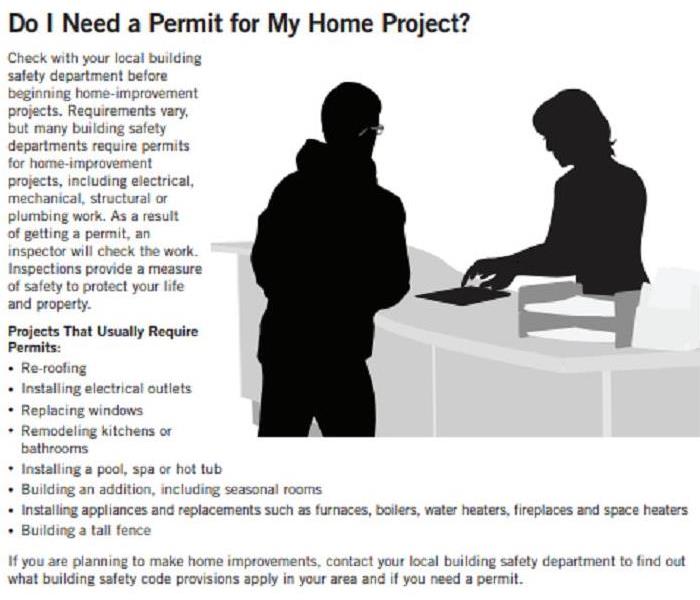The Origins of Building Codes
5/2/2018 (Permalink)
Have you ever asked “Why do I need to get a building permit and follow building codes? It’s my property,” while building a deck, remodeling a kitchen, or making a small addition to your home? You are not alone, so it may help to have an understanding of where building codes come from and how they can protect your family, your investment, and your community.
Week 1 of National Building Safety Month is about partnering with building code officials to build safer and stronger communities. And SERVPRO of East Greenville County wants to help our community do the same.
A Short History Lesson On Building Codes
Construction methods and materials contributed to the densely populated area of large cities being prone to massive fires that could quickly spread. The damage and loss of life these fires would devastate communities and recovery could take months or even years. In 1871 The Great Chicago Fire was such an event, burning for three days and destroying miles of the city.
The devastation left behind by the fire had a significant impact on the mayoral election, leading to Joseph Medill to win the election after he adjusted his campaign platform to focus on stricter building and fire codes. He worked with Chicago’s civic leaders and created codes requiring new structures to be built with noncombustible brick or stone exteriors as well as roofs that composed of ignition resistant materials. Over the next few years many cities would follow suit and create their own fire and building codes, and eventually, a national standard began to develop.
Organizations formed in each region of the country, each publishing lists with their own standards and codes. And although most initial codes were intended to reduce the risks and impacts of fire, codes have evolved to cover building stability, sanitation, energy efficiency, and more. Regional organizations started forming in 1873, but it wasn’t until 1994 that many of the organizations merged to form the International Code Council and began to set current codes and regulations. And since 2003 the NAFP 5000 Building Construction and Safety Code is revised, updated, and published every three years.
How Building Codes Can Benefit You
Getting a permit and adhering to building and fire codes are not just civic hoops for you to jump through with no purpose. They are actually parts of a process that is designed to protect a structure, its owners, and occupants. Codes officials ensure the safety and well being of the community by enforcing building and fire codes. Communicating and partnering with Greer and Greenville building officials can help to avoid issues that can cost time and money, or worse put your family at risk.
For more about building code history visit ICCsafe.org.
Thanks to the ICC and Fire Engineering.






 24/7 Emergency Service
24/7 Emergency Service
